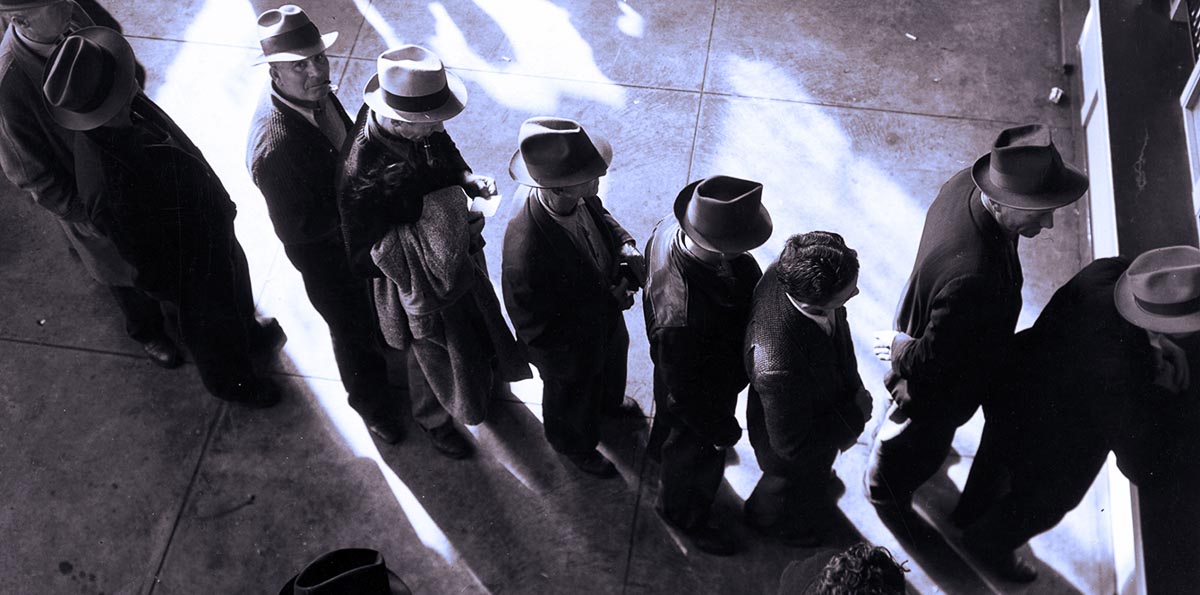On Thursday, the Labor Department reported some 117,000 people in Texas applied for unemployment benefits last week — an increase of almost 21.5% from the previous week’s roughly 96,500 new applications. Across the nation, nearly 2.4 million people applied for state and federal unemployment benefits.
This post is part of our “COVID-19 and Cities” series, which features experts’ views on the global pandemic and its impact on our lives.
The U.S. added 4.8 million new jobs in June as bars, restaurants and retail businesses in many states reopened and millions who were furloughed in March and April returned to work. However, two-thirds of the jobs eliminated during the pandemic have not been brought back.
It was welcomed economic news, but the unexpected surge in jobs was followed by a surge in COVID-19 cases in southern and western states. Many of those were the earliest in the nation to begin reopening their economies, and some have since rolled back their reopening.
Texas’s jump of more than 21,600 jobless claims is three times higher than the increase of around 7,000 for the week ending June 27. State officials attributed that week’s 8% increase to layoffs in the health care and social assistance, transportation and warehousing, and art, entertainment and recreation industries.
As the Houston Chronicle’s Erin Douglas points out: Over the past three months, new jobless claims in Texas had been declining since late March and early April, when record-high initial claims surpassed 300,000 per week. Last week was the first since May that more than 100,000 people filed for unemployment benefits. Before the pandemic, there was an average of 14,000 initial jobless claims in the state each week.
Around 17.8 million Americans are unemployed because of the coronavirus pandemic.
Houston metro is the hardest hit in the U.S.
According to the latest Household Pulse Survey from the U.S. Census Bureau, much of the nation’s workers are feeling the economic impact of the COVID-19 crisis, but those living in the Houston metropolitan area appear to be getting hit the hardest. Nationwide, almost half (49%) of workers have experienced a loss in employment income because of the pandemic, according to the survey, which collects data on different ways the pandemic is impacting people’s lives and is released weekly. In Texas, 54% of workers report having lost income. But the effect is even more widespread in the Houston area, where nearly 64% of workers report having had a loss in employment income.
The latest iteration of the Household Pulse Survey — conducted June 25–30 — shows pessimism about the economy is growing among residents in the Houston metro area. Some 52% say they expect a loss in employment income. That’s the highest percentage since 47.6% of respondents reported an expected loss of income in week two of the survey, conducted May 7–12. It’s also higher than the overall response for the state (43%) and the nation (35%).
Of the nation’s 15 largest metropolitan statistical areas, respondents in the Houston-The Woodlands-Sugar Land MSA report the highest level of loss in employment income, expected loss in income, housing insecurity (45.7%) and food scarcity (16.9%).
The jump in jobless claims coincides with the continued rise in COVID-19 deaths, diagnoses and hospitalizations in Texas. On Thursday, there were 10,214 new cases reported and there were more than 9,600 people hospitalized for the disease. According to the Chronicle, there are 11,296 beds available in the, including 953 in ICU.
Texas has seen a steady climb in infections since late May, around the time that phase two of Gov. Greg Abbott’s reopening plan allowed businesses to expand services and allowed more types of businesses, such as water parks, to reopen. Two weeks ago, Abbott pressed pause on plans to reopen the economy and rolled back efforts, ordering all bars in the state to again close and limiting capacity for dine-in service in restaurants to 50%, as well as placing some restrictions on the size of outdoor gatherings.
State workforce is slow to recover
Another report released Thursday further underscored the struggles in Texas’s economic outlook, ranking it as the state whose workforce is experiencing the 6th slowest recovery from the pandemic in the country. The rankings were determined through a comparison of the 50 states and the District of Columbia across three metrics based on changes in unemployment claims.
When ranking the states’ workforces for quickest economic recovery since the pandemic began in March, Texas comes in at No. 23, according to WalletHub. However, when looking at which states have recovered the most since last week, Texas drops to No. 46. And based on the change in unemployment claims between now and the beginning of the year, the Texas workforce is experiencing the fifth slowest recovery in the U.S.
Since the beginning of the pandemic, nearly 2.8 million workers have filed for unemployment in Texas. During the same period last year — from March 16–June 29 — there were 213,849 unemployment claims in the state.

